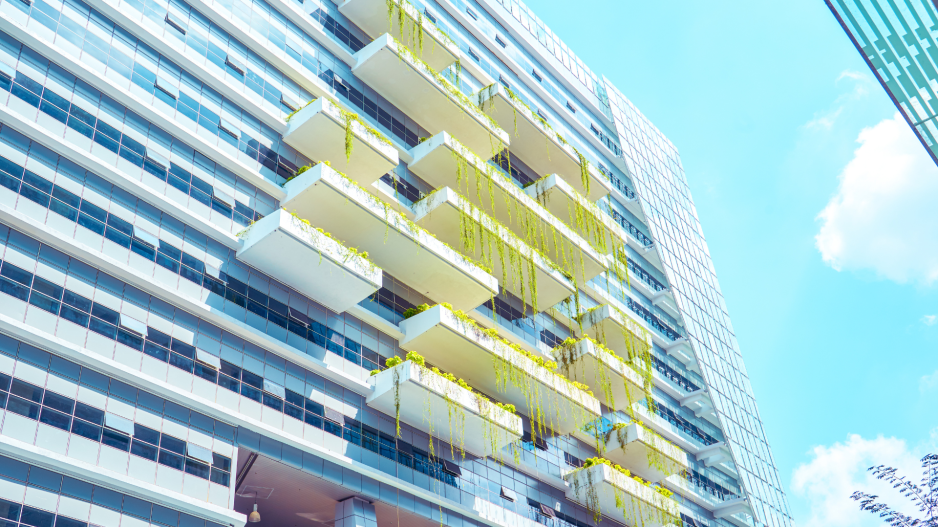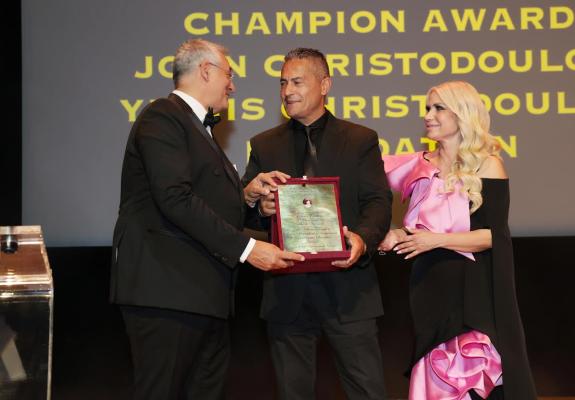5 Examples Of Sustainable Architecture In Cyprus
From Groundbreaking Designs to Award-Winning Developments
Cyprus is making notable strides in sustainable architecture, driven by increasing awareness of environmental issues and advancements in green building technologies. As the island faces environmental challenges and growing demands for energy efficiency, innovative architects and developers are stepping up to integrate eco-friendly practices into their designs.
As global awareness of environmental issues grows, the field of sustainable architecture has gained momentum worldwide. Cyprus has been actively promoting renewable energy, particularly solar power, to reduce its reliance on fossil fuels and combat climate change, while increasingly adopting sustainable architectural practices to address environmental concerns and promote energy efficiency.
Cyprus has seen a significant shift towards sustainable architecture in recent years. The Mediterranean climate poses unique challenges, such as high temperatures and water scarcity, which necessitate innovative design solutions. According to the Cyprus Energy Agency (CEA), buildings account for approximately 40% of the island's energy consumption and 36% of greenhouse gas emissions. This makes the construction sector a critical focus for sustainability efforts.
The Cypriot government is also focusing on improving energy efficiency in public buildings. A recent study by Housing Europe found that retrofitting public sector buildings with modern energy-efficient technologies could lead to a reduction in energy consumption by up to 35%. This includes upgrading lighting systems, enhancing insulation, and implementing advanced heating and cooling systems. For instance, the renovation of the Nicosia Municipal Theater involved significant energy-efficient upgrades, resulting in a reported 25% decrease in energy usage.
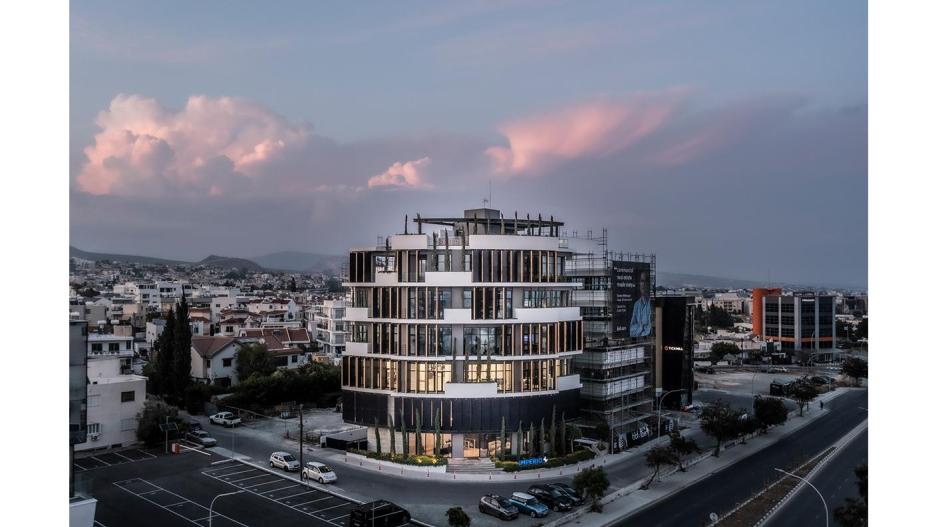
A prime example of UDSarchitect’s sustainable design is the Imperio House in Limassol, developed for Imperio Properties. This building is recognized for its energy efficiency, earning a Category A Energy Efficiency Certificate and approaching net-zero energy use.
UDSarchitect tackled the challenge of excessive sunlight penetration, which could cause high interior temperatures and glare. Traditional PV panels were impractical due to the roof garden, so the team designed a façade system with PV panels that rotate to track the sun. This solution not only provides necessary shading but also generates energy, reducing the building’s electricity consumption and demonstrating an innovative approach to integrating sustainability into urban architecture.
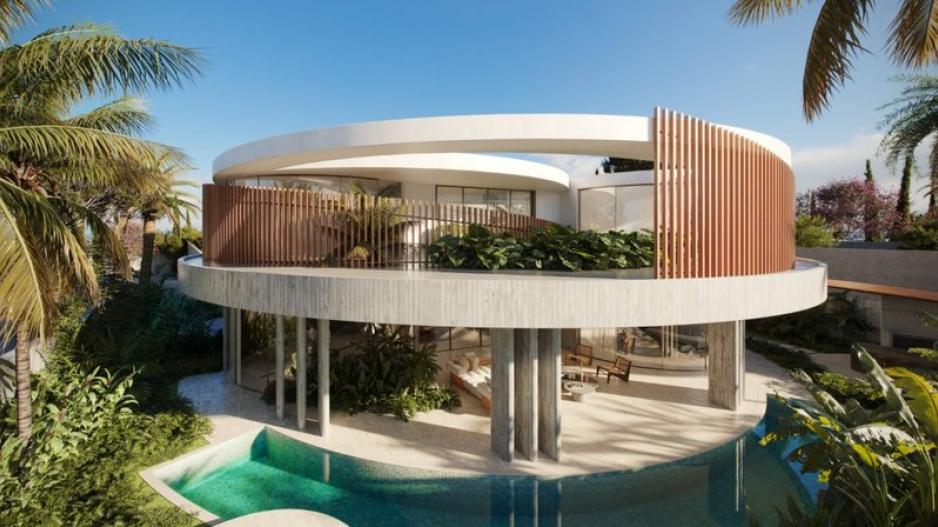
The Coeo Gladstonos Exclusive Residences project by Rotos Group, currently under construction on Gladstonos Street in Nicosia and poised to finish in less than a year’s time, exemplifies cutting-edge sustainable design. The development incorporates a range of eco-friendly features aimed at reducing energy consumption and environmental impact.
Each apartment will be equipped with photovoltaic (PV) panels, significantly reducing electricity consumption and enhancing energy efficiency. The building incorporates an external thermal insulation system using environmentally friendly materials, ensuring optimal indoor temperatures—keeping spaces warm in winter and cool in summer.
Additionally, the development employs high-performance, low-energy machinery and features thermally insulated aluminum frames and windows to further reduce energy use. The bioclimatic design of the building is oriented to maximize natural sunlight and airflow, promoting natural heating and cooling. Rooftop gardens and green spaces are integrated into the design, supporting urban biodiversity and reducing the overall environmental footprint. The project also includes a rainwater harvesting system for garden irrigation and implements effective waste management and recycling practices.
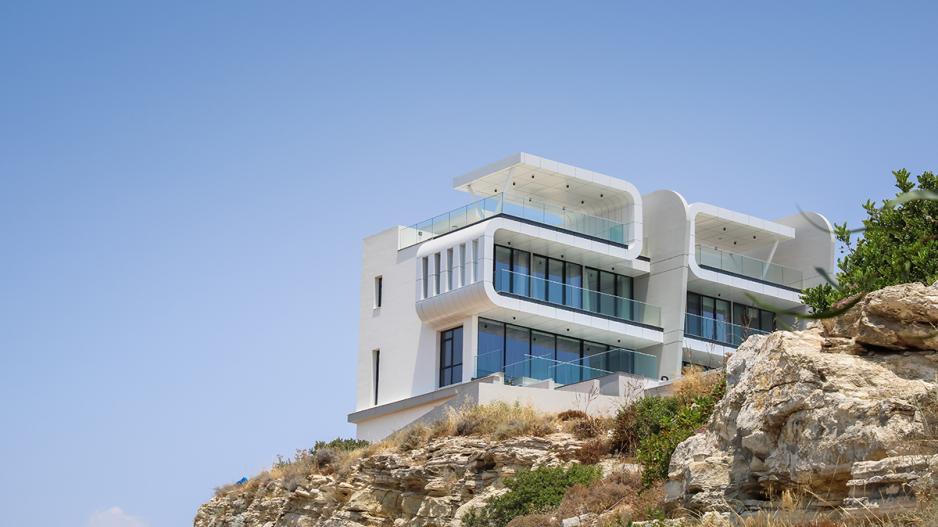
PPA Architects remains deeply committed to sustainable design, by integrating environmental impact and carbon footprint considerations into every project. A notable example of their approach is the Amathus Beach Hotel Limassol, where the firm pioneered the use of a sea-water-cooled system, a first for Cyprus. This passive energy system efficiently handles the hotel’s cooling requirements and exemplifies their dedication to innovative sustainability practices.
PPA Architect’s approach to sustainability extends beyond active systems. By prioritizing passive design strategies, including solar shading, optimal building orientation, plan depth, cross-ventilation, and thermal mass, they have been able to form a solid foundation for further sustainability efforts.
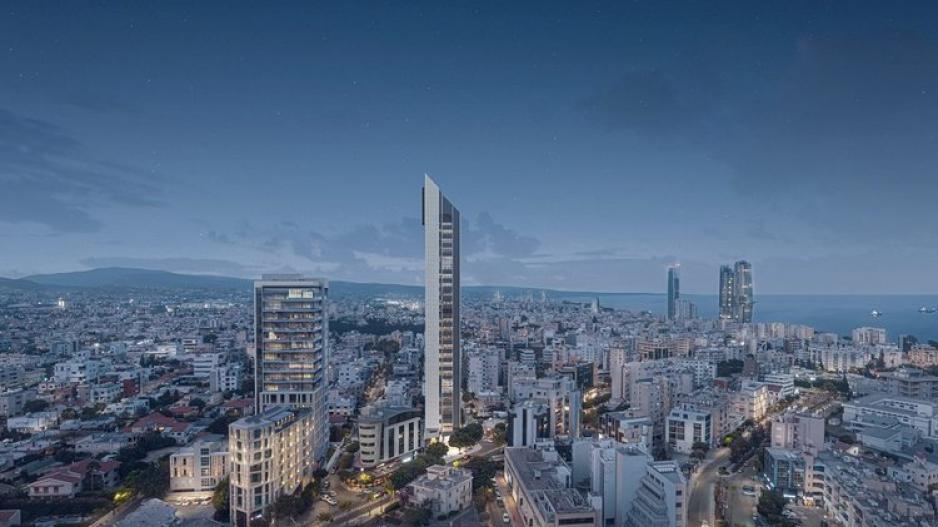
The Neocleous Tower, an office building in the heart of Limassol, redefines standards in sustainable commercial real estate in Cyprus. Spanning 12,600 square meters across 26 floors, this innovative project is recognised as the first commercial building in Cyprus to achieve LEED (Leadership in Energy and Environmental Design) certification. This prestigious certification underscores the tower's commitment to high indoor air quality, reduced chemical emissions, and overall energy efficiency, which directly benefit the health and well-being of its occupants.
The design of Neocleous Tower emphasizes both passive and active sustainability strategies. Passive design features include strategic building orientation, solar shading, and optimized ventilation to minimize energy needs. Active systems such as state-of-the-art heating and cooling, renewable energy sources, and high-performance insulation further enhance the building's efficiency. The tower will achieve 50% fewer greenhouse gas emissions from water use, 48% less solid waste pollution, and 5% lower transportation emissions compared to conventional buildings.
Additionally, the tower integrates sustainable materials with low carbon footprints and includes advanced ventilation systems to ensure superior indoor air quality. Its strategic location supports the Sustainable Urban Mobility Plan (SUMP) by reducing reliance on cars and minimizing emissions.
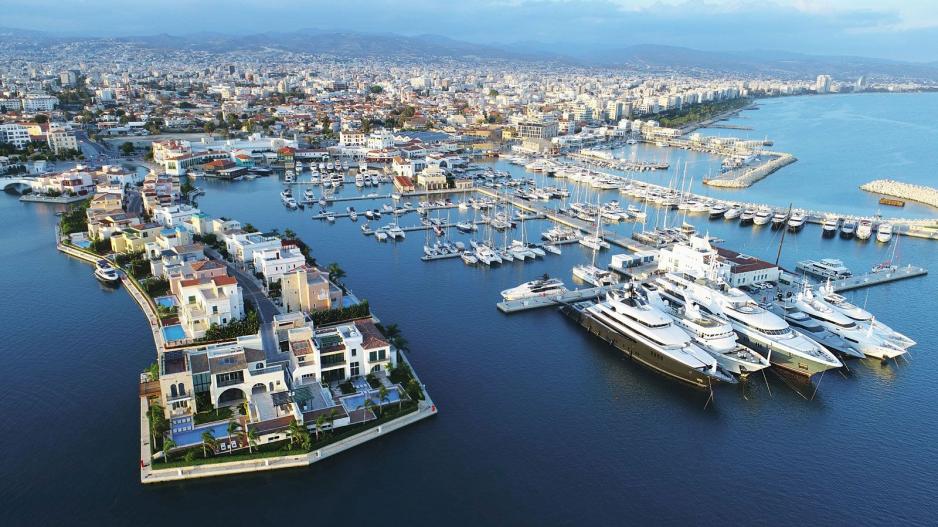
Limassol Marina has recently been honored with the International Smart & Sustainable Marina Award 2023, a testament to its leadership in sustainable marina development. This prestigious award, presented at the 3rd Edition “Smart & Sustainable Rendezvous” event in Monaco, recognizes Limassol Marina for its excellence in key sustainability areas including water management, energy optimization, and renewable energy integration.
The marina's commitment to sustainability is evident through its advanced solutions in waste management, construction methods tailored to coastal environments, and initiatives that respect and protect local biodiversity. This award highlights the marina’s ongoing efforts to drive positive change within the industry by combining innovative technologies with eco-friendly practices.
Cyprus is experiencing a transformative shift in its architectural landscape, with a growing emphasis on sustainability and eco-friendly practices. The architectural firms and projects highlighted in this article demonstrate how innovative design and technology can address environmental challenges while creating spaces that are both functional and aesthetically pleasing. As the island continues to embrace green building practices, it sets an inspiring example for the broader Mediterranean region and beyond.
